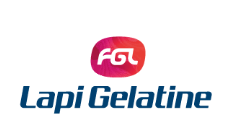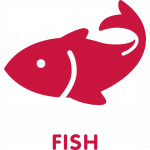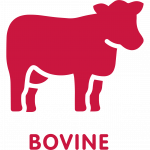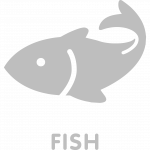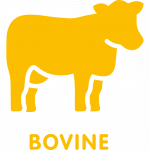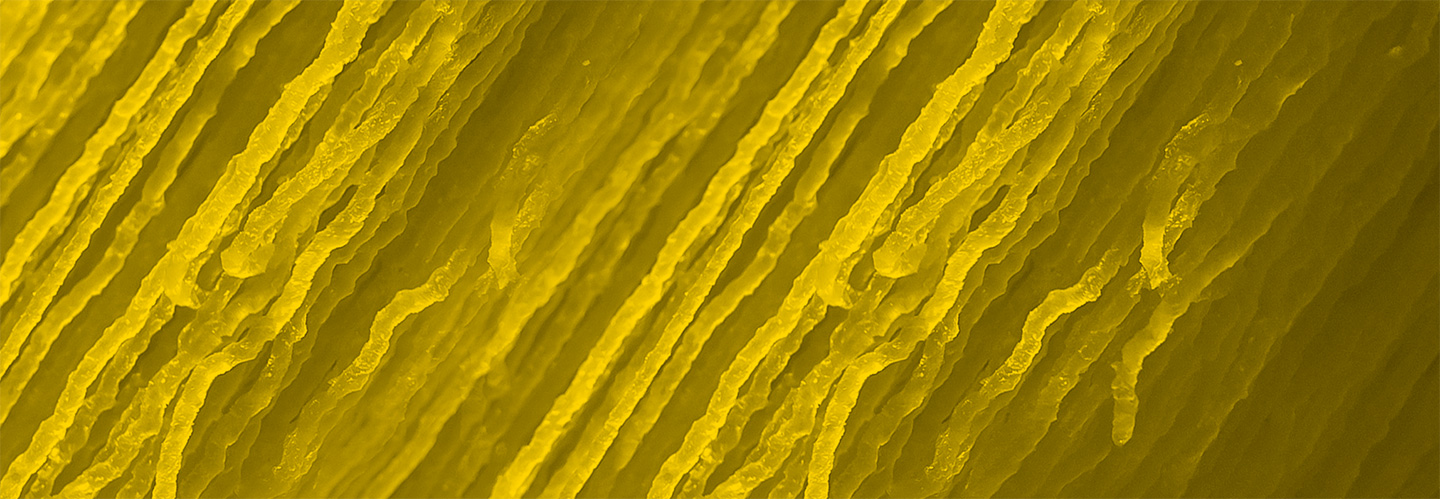
Fish Collagen
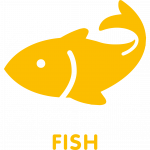
Sustainability and energy
PURE FISH COLLAGEN
Lapi fish collagen is 100% pure.
SUSTAINABILITY
Various audits are also carried out on sustainability, both on suppliers and in our facilities. Most of our suppliers are also certified with the following certification bodies: ASC, MSC, BAP, GAP.
COLOUR AND LOW TURBIDITY
Fish, compared to the other raw materials used to produce collagen, is white in colour and has very low turbidity.
KOSHER & HALAL CERTIFIED COLLAGEN
In addition to the system certifications, we also offer Halal and Kosher certified fish collagen.
SUPPLY CHAIN CONTROL
We produce hydrolyzed fish collagen from gelatine that is realized from the skin of Pangasius and Tilapia, supplied directly by breeders. Periodic audits of the breeders are carried out by our quality department, through a specialised partner company and local authorities, thus ensuring traceability and maximum safety of the raw material and, consequently, of the collagen.
FISH AMINO ACIDS WITH UNIQUE CHARACTERISTICS
Hydrolyzed collagen consists of amino acids that are essential for development and health. Lapi Gelatine hydrolyzed collagen has a high concentration of Glycine, Proline and Hydroxyproline, which represent 50% of all amino acids. It is also provided with a high level of essential amino acids, such as Histidine, Methionine, Phenylalanine and Threonine.
DID YOU KNOW THAT
- Arginine is used in the treatment of various cardiovascular diseases?
- Serine is necessary for the metabolism of fats and fatty acids, for muscle growth and the maintenance of a healthy immune system?
- Tyrosine reduces body fat content, encourages the synthesis of melanin and regulates the correct functioning of organs, such as the thyroid?
What is fish collagen?
Collagen is a protein formed by a long string of amino acids and is responsible for the structure, function and mechanical properties of the epidermis, cartilage and tendons. Fish collagen also has the distinction of having a sustainable production process, starting with the farming.
What is Hydrolyzed fish collagen?
Hydrolyzed fish collagen, also called fish collagen peptides, is produced by hydrolysis which “breaks down” the long collagen molecule into shorter chains, known as peptides, with a molecular weight of between 1000Da and 3000Da. Peptides are more easily and more quickly assimilated by the body, resulting in immediate benefits.
Collagen supplements made from fish
The benefits of fish collagen peptides derive from the amino acids in them. They are fundamental elements for development and health which offer important benefits for bones, hair, skin, muscles, joints and much more. Fish collagen supplements provide these benefits, combined with the guarantee of an all-round sustainable process.
Fish collagen peptide benefits
Collagen peptides are made up of 18 amino acids, 7 of which are essential (they are not produced by the body and must be assimilated with food). Type 1 hydrolyzed fish collagen is produced from the skin of Tilapia and Pangasius fish and contains a high concentration of:
arginine
- hydroxyproline
- glycine
- proline.
Arginine
Arginine, for example, is used to prevent or combat cardio-vascular diseases and to combat fatigue and stimulate the immune system.
Hydroxyproline
Hydroxyproline and proline have important benefits for the tissue and are important for both cosmetic applications and for regenerating tissue in the event of injuries to ligaments, muscles, joints and the skin.
Glycine
Glycine has nutraceutical functions but is also used in dietary products because it encourages the production of bilic acid, required to emulsify and then, digest fats.
These are just some of the many benefits of these four amino acids which make up about 50% of the total of fish collagen.
Does fish collagen work?
The benefits of fish collagen are scientifically proven. Among the many applications, fish collagen is best known for its use on the skin and, therefore, is used mainly in the field of cosmetics and nutricosmetics. A number of scientific research projects have demonstrated its properties and that it is free from negative side effects.
Some studies on fish collagen taken from scientific literature are listed below, by way of example:
(1) Chiara De Luca, Elena V. Mikhal’chik, Maxim V. Suprun, Michael Papacharalambous, Arseniy I. Truhanov and Liudmila G. Korkina (2016) – Skin Antiageing and Systemic Redox Effects of Supplementation with Marine Collagen Peptides and Plant-Derived Antioxidants: A Single-Blind Case-Control Clinical Study
(2) Daniela Coppola,Maria Oliviero, Giovanni Andrea Vitale, Chiara Lauritano, Isabella D’Ambra, Salvatore Iannace and Donatella de Pascale (2020) – Marine Collagen from Alternative and Sustainable Sources: Extraction, Processing and Applications
(3) Malkanthi Evans DVM, PhD, Erin D. Lewis PhD, Nisrine Zakaria PhD, Tetyana Pelipyagina MD, Najla Guthrie BSc (2020) – A randomized, triple-blind, placebo-controlled, parallel study to evaluate the efficacy of a freshwater marine collagen on skin wrinkles and elasticity
(4) Meison Furtado, Liang Chen, Zehao Chen, Ao Chen, Wenguo Cui (2022) – Development of fish collagen in tissue regeneration and drug delivery
(5) Sarah Geahchan, Parnian Baharlouei and Azizur Rahman (2022) – Marine Collagen: A Promising Biomaterial for Wound Healing, Skin Anti-Aging, and Bone Regeneration.
How to extract collagen from fish?
The production process involves the extraction of the collagen which is naturally present in fish skin.
It can be done in two stages by first producing gelatin and then, by hydrolyzing it to produce hydrolyzed collagen, or in a single stage from the raw material to the finished product.
The process includes an acid and/or alkaline enzymatic treatment aimed at “breaking down” the protein into smaller molecules, followed by the extraction of the latter with water. Lastly, the semi-finished product is dried with a spray dryer and then, purified and sterilised.
Fish with collagen
All animals contain collagen so any species of fish can be a source of collagen. In Lapi Gelatine, we use Tilapia and Pangasius fish for our production due to their availability and the guarantees provided by the fish farmers.
What are the types of fish Lapi utilizes
Tilapia and Pangasius are two types of freshwater fish, farmed in various parts of the world, above all in Asia and South America.
Does the fish skin used by Lapi come from fishing or fish farming?
We use fish from fish farms as the raw material for our fish collagen because they are more sustainable. In addition to being recognised as suitable from a purely legal point of view, our suppliers are selected through various audits, carried out both internally and by third party institutions. They are also always certified to guarantee a sustainable farming process.
What are the certifications we have obtained?
We are ASC-certified to guarantee the sustainability of the entire supply chain. The quality of the product and the production methods also allow us to offer a Kosher- and Halal-certified product, according to the highest standards.
Buy fish collagen: tell us what your customer needs or try out Peptolap and Lapigel, our brand-new products
Our experience and expertise are at your disposal. We are at your disposition wherever we can help you!
Peptolap is the result of Lapi Gelatine’s ongoing research into innovation with the aim of providing both pure and natural hydrolyzed fish collagen.
Lapigel, on the other hand, is our top-quality gelatin, the result of over fifty years of growth in expertise and innovation, stemming from Lapi Gelatine’s ongoing research and development in the field of production.
